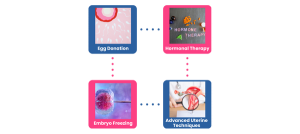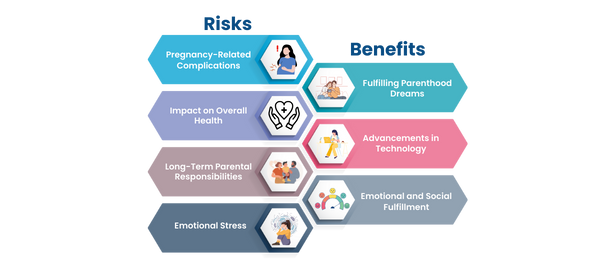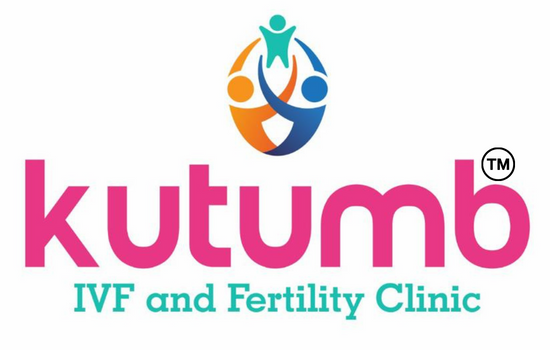Understanding Menopause
Menopause marks the natural end of a woman’s reproductive years, usually occurring between ages 45-55, with symptoms like irregular periods, hot flashes, and hormonal changes. It signals the ovaries’ cessation of egg release and hormone production, ending natural fertility. However, advancements in reproductive medicine, such as IVF, offer options for women to conceive even after menopause.
The Biological Clock and Fertility
A woman’s fertility declines with age as the number and quality of eggs decrease. By menopause, the ovarian reserve is nearly depleted. While natural conception is no longer possible, IVF using donor or frozen eggs, combined with hormone therapy, can prepare the uterus for pregnancy. This breakthrough enables women to overcome age-related fertility challenges and fulfill their parenthood dreams. A fertility specialist in Visakhapatnam can provide personalized guidance and treatment options to support women on this journey.

Assisted Reproductive Technologies
ART has transformed the possibilities of conception, especially for women past their natural reproductive years. Here’s how it works for postmenopausal women:
a. Egg Donation
Since menopause depletes a woman’s natural egg reserve, egg donation is a cornerstone of IVF for postmenopausal women. Donor eggs, typically retrieved from younger women, are fertilized with sperm in a laboratory. The resulting embryos are transferred to the woman’s uterus, making pregnancy possible.
b. Hormonal Therapy
Hormonal treatments play a crucial role in preparing the uterus for embryo implantation. Estrogen and progesterone supplements are used to mimic the natural hormonal environment of a fertile woman’s body, ensuring that the uterine lining is thick and healthy enough to support a pregnancy.
c. Embryo Freezing
For women who froze their eggs or embryos earlier in life, menopause does not prevent them from undergoing IVF. These frozen embryos can be thawed and implanted at a later stage, giving women more flexibility in planning their families.
d. Advanced Uterine Techniques
Modern techniques, such as endometrial regeneration therapies, can enhance uterine receptivity, especially for women whose uterine lining has thinned due to age.
You may also like: Can Fibroids Cause Infertility? Understanding the Impact on Fertility
Challenges of IVF After Menopause
While ART offers hope, undergoing IVF after menopause comes with its own set of challenges:
a. Health Risks
Postmenopausal women are more likely to face health complications during pregnancy. Conditions such as hypertension, diabetes, and cardiovascular issues are more prevalent in older mothers, increasing the risk for both mother and child.
b. Uterine Health
The uterus undergoes natural aging, which may lead to thinning of the endometrial lining. This can make it difficult for the embryo to implant successfully or sustain a pregnancy. Advanced treatments may be required to improve uterine health.
c. Ethical and Emotional Considerations
Pregnancy after menopause often raises ethical and emotional concerns. Some question whether it is fair to bring a child into the world at an advanced maternal age, while others worry about the emotional and physical demands of parenting later in life.
d. Lower Success Rates
While ART has advanced significantly, the success rate of IVF decreases with age. Even with donor eggs, older women may face challenges in achieving and maintaining a healthy pregnancy.
Considerations for Post-Menopausal IVF
While menopause marks the natural end of a woman’s reproductive years, advancements in assisted reproductive technologies (ART) have made it possible for women to conceive even after this stage. However, certain factors must be considered before proceeding with post-menopausal IVF:
a. Use of Donor Eggs
Post-menopause, the ovaries no longer produce eggs, so IVF typically requires donor eggs. The selected donor’s eggs are fertilized with the partner’s or donor’s sperm, and the resulting embryo is implanted in the woman’s uterus.
b. Hormonal Preparations
Since menopause involves a decline in hormones like estrogen and progesterone, hormonal therapies are necessary to prepare the uterus for implantation. This involves:
• Estrogen supplementation: To thicken the uterine lining for successful embryo attachment.
• Progesterone therapy: To support early pregnancy.
c. Health Screening
Before undergoing IVF, thorough health screening is crucial to assess:
• Uterine health: Ensuring the uterus can support a pregnancy.
• Cardiovascular health: Pregnancy post-menopause poses additional strain on the heart.
• Bone health: Declining estrogen levels post-menopause increase the risk of osteoporosis, which may affect pregnancy outcomes.
d. Emotional and Psychological Readiness
Late-in-life parenthood can bring unique challenges. Emotional preparedness, alongside adequate family and social support, is vital.
e. Legal and Ethical Considerations
In some regions, there may be legal or ethical guidelines regarding age limits for IVF. Consulting with fertility specialists and legal advisors ensures compliance.

Weighing the Risks and Benefits
IVF after menopause involves weighing potential risks against the emotional and physical rewards of parenthood. Below is a balanced view:
Benefits
1. Fulfilling Parenthood Dreams
Post-menopausal IVF provides a unique opportunity for women who missed their biological window due to personal, medical, or societal reasons.
2. Advancements in Technology
With donor eggs, advanced screening methods, and personalized treatment protocols, IVF success rates in older women are improving.
3. Emotional and Social Fulfillment
For many, the joy of raising a child outweighs the challenges of later-in-life parenting, offering immense personal satisfaction.
Risks
1. Pregnancy-Related Complications
Pregnancy post-menopause carries higher risks of complications, including:
◦ Hypertension or preeclampsia
◦ Gestational diabetes
◦ Preterm delivery
2. Impact on Overall Health
Hormonal treatments and the physical demands of pregnancy can strain the body, particularly the cardiovascular system.
3. Long-Term Parental Responsibilities
Late-in-life parenting may pose unique challenges in terms of energy, longevity, and financial planning for the child’s future.
4. Emotional Stress
IVF is a physically and emotionally demanding process, with no guarantees of success. Multiple attempts may be required, adding to the emotional toll.
Yes, IVF can be done after menopause, although the process may involve additional challenges. Since menopause marks the end of natural egg production, women seeking IVF after menopause usually rely on egg donors. The procedure remains similar to conventional IVF, but with the use of donated eggs and careful hormone treatments to prepare the uterus for implantation. It’s essential for women considering IVF after menopause to consult with an experienced fertility specialist to understand the best options available.
Conclusion
In conclusion, IVF after menopause offers hope to women who wish to experience motherhood, and with advancements in fertility treatments, women in need of female infertility treatment in Vizag can explore their options with the right medical support and guidance.
